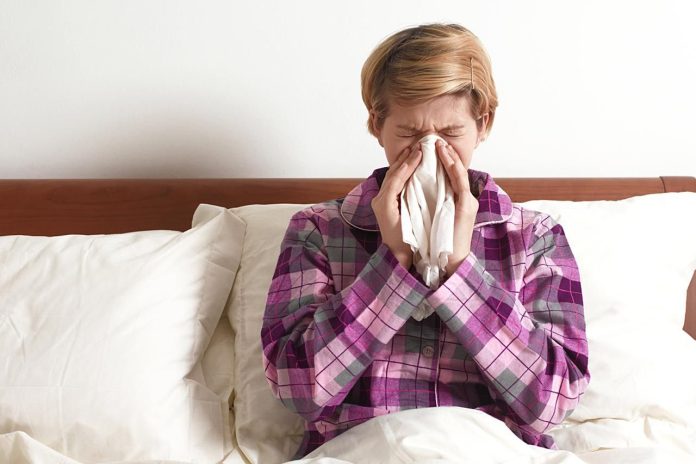Our world is full of bacteria. Some of it is beneficial to us, aiding in digestion by helping our bodies break down food and absorb nutrients or keeping us healthy by ridding our bodies of toxins. Of course, there is also plenty of bacteria in the world that are considered potentially harmful, or even fatal to our bodies. These bacteria can weaken our immune systems and lead to a range of different infections that could send our bodies into shock and cause them to shut down completely. This occurs all too often in environments where people are not able to care for themselves and manage their health, like in assisted living facilities, where 25,000 nursing home residents die of sepsis each year–6,000 are hospitalized each year just in the state of Illinois. To keep a bacterial infection from becoming too serious, it’s important to recognize the signs and symptoms early on so you can seek the proper treatment.
Respiratory Infection
Of all the bacterial infections that can lead to sepsis, lung and respiratory infections are the most common and deadly. One of the respiratory infections most frequently linked to sepsis is pneumonia. Many people contract pneumonia through airborne bacteria, viruses, or fungi. Pneumonia is fairly easy to treat until it combines with another viral infection like the common cold, the flu, or covid-19. You might think that none of these viruses are particularly threatening on their own, and that’s a fair assumption, but once they combine with pneumonia your body’s ability to fight infection becomes severely limited. Another issue with this combination of infections is that pneumonia can mimic symptoms of the common cold, flu, or covid-19, so you might not even realize that you’ve contracted it, you might just think your cold has gotten more stubborn. Unlike the common cold, if left untreated pneumonia can lead to death. So, if you’re experiencing severe cold and flu symptoms, then it might be a good idea to contact your doctor so they can give you a proper diagnosis and prescribe any necessary antibiotics. Of course, the best way to ensure your health is to take preventative measures. Make sure that you stay up to date on your vaccines. Choosing to get a flu shot this year could potentially be a life-or-death decision.
Kidney, Bladder, and Urinary Tract Infections
Not all infections are caused by exposure to airborne bacteria. Kidney, bladder, and urinary tract infections are all primarily caused by exposure to the bacteria Escherichia coli (more commonly known as E.coli). E.coli bacterium is most commonly found in fecal matter. You can unknowingly increase the risk of allowing E.coli to travel into your urinary tract if you engage in vigorous sexual activity, spend too long sitting in your filth, or go to bed in underwear that runs the risk of transferring bacteria with movement–like thongs or especially tight underwear. This is why, to prevent E.coli from causing an infection in your urinary tract, you must shower regularly, wear clean undergarments, and always urinate after sex to clear your tract. While urinary tract infections can range from uncomfortable to downright painful, their symptoms are much less severe than the infections that can be caused by a lack of treatment. If your urinary tract infection is left untreated for too long, it could lead to bladder infection which, if left untreated, could lead to kidney infection. If your kidney infection goes untreated for too long it could lead to chronic kidney disease, kidney failure, and septic shock.
Skin and Blood Infections
In medieval times, any little scratch or scrape had the potential to invite infections into the body and lead to death. Now, thanks to modern medicine like vaccines and Neosporin, it’s much easier to prevent bacteria from causing infections through cuts and scrapes. Even still, with these advancements, we are not completely invincible to bacteria introduced to our bodies through trauma. We might not have to worry so much about cuts and scrapes, but we are still vulnerable any time bacteria are introduced into our blood in cases of larger, deeper injuries. This is why it is so important that doctors and hospitals practice proper sterilization techniques before and after surgeries by properly cleaning surgical tools, washing hands, and wearing gloves and masks to minimize the risk of exposure and by ensuring that wounds are properly cleaned and dressed post-surgery. The same goes for any businesses that specialize in body modification like tattoos and piercings. If you visit a refutable, well-practiced tattoo artist or piercer, they will give you instructions on how to care for your new modification to ensure that it heals properly. It’s important to follow these directions closely, otherwise, you risk infections that could prove to be fatal.
Also Read More: How to Live a Healthier Life







